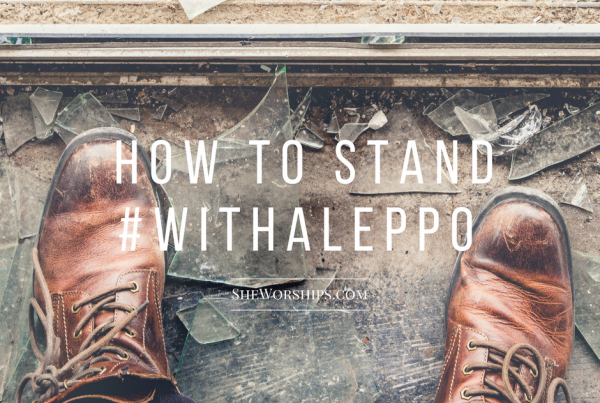As you probably know by now, today marks the anniversary of Roe versus Wade, the monumental court case that legalized abortion in America. Because of this anniverary, news outlets all over the country have been aflutter with stories about the state of abortion in the U.S.
This afternoon I listened to the radio as a reporter interviewed two counselors who work with women recovering from abortion. In the course of the interview, callers phoned in with stories of their own abortions, and it was heart-breaking to hear. Many women have suffered greatly from an inability to forgive themselves.
However, not all the callers were so distraught. To my shock, some called in to proclaim that they’d had abortions with absolutely no regrets. What’s more, they felt that no one should have regrets about abortion–it’s your choice, and you should do what’s best for you. Period.
Upon hearing these women’s words, I initially felt sick to my stomach. How could they so cavalierly dismiss a human life? After all, these were not women who were teens or minorities facing financial hardships–these women admitted that they simply didn’t want to be bothered. Either they were in the middle of pursuing their career goals, such as studying in law school, or they already had a family to raise and didn’t want anymore kids. Having a baby was inconvenient, so they chose abortion.
Stories like these problematize the abortion debate considerably. On the one hand, I sympathize with the large percentage of minorities and teens who feel backed into a financial corner and don’t see any other option besides abortion. Those women need advocates, and the church should do everything in its power to care for them.
However, not all women who have abortions are in such dire straits. Some are old enough to be responsible mothers, and they have the finances to support a child–they simply don’t want to. In those cases, the church will not address the problem by simply providing care for pregnant women. The apathetic attitude demonstrated by the women on the radio reflects a much deeper problem, a problem that goes beyond the practical obstacles of pregnancy, and delves into the issue of worldview.
To understand the perspective behind using abortion as birth control, I have been trying to crawl inside the minds of these women. And the more I’ve thought about it, the more it kind of makes sense on some level. Let me explain…
Many people have sex in an instant gratification kind of way. They do what feels good in the moment. The act is not so much a reflection of long term commitment to another as it is an immmediate source of pleasure. Having a baby, on the other hand, is just the opposite. Even if you put the child up for adoption, you are still stuck with a baby in your belly for 9 months. You might have morning sickness, all sorts of joint pains, and you’ll lose the shape of your body. Staying pregnant is therefore a long-term commitment that is guaranteed to be hard.
In this way, having sex and having a baby are polar opposites. According to our culture, sex requires very little of us but gives immediate pleasure. Having a baby, on the other hand, requires a lot of us and can be a horrible experience. That said, it makes perfect sense that so many women choose abortion. Abortion is the instant gratification solution for a culture that lives according to instant gratification.
With all of this in mind, the church has its work cut out for it. Not only should we do a better job of providing pregnant women with resources so that they feel the freedom to keep the baby, but we’ve got to address the reigning mindset as well.
Out of all the hot button issues today, abortion is perhaps the best at revealing our hypocrisy. Our generation prides itself on its mind for social justice, but if the choice is between caring for the oppressed or caring for ourselves, we’ll choose ourselves every time. And that is exactly what these babies are–they are oppressed. Their voices and their lives are not represented by our government, so someone needs to stand for them. That is our job as Christians–we are to be a voice for the poor and oppressed, so we are to be a voice for these children. We must also be a prophetic voice that shines a spotlight on such blatant hypocrisy.
If you have had an abortion, please don’t read this as a condemnation of you as a person. We all make mistakes, we do the best we can with the information we have at the time, and we cannot change our past. What we can do is to direct our future. God is a redeemer who can take any situation and make it into something glorious, so I hope that you let Him.
In closing, let us not forget our call as Christians. We should not only stand on behalf of the countless women who have abortions because they feel they have no other option, but we should also stand on behalf of the millions of babies who have no one to advocate for them. If ever a group was oppressed, these millions of unborn children would be it. Now our task is to do the hard work of prying the culture’s eyes off of itself, and challenging our society with the tough question of what it TRULY means to live for another.






good job of tackling a difficult and complex issue on your blog – you showed tremendous courage and insight
however
i have two questions/comments
1 you seem to imply that those in a difficult station in life who are unable either by finances or age to care for a child are in some sense excused for their choice to have an abortion wherease toward the end you imply that these oppressed fetus’ are themselves lives in need of a voice to protect their rights –
thus if the fetus is an oppressed life in need of a voice then it hardly makes sense to imply that a pregnant womens’ financial situation should enter into the discussion – if the fetus is indeed a person then the mother’s credit score doesnt matter
2. (similar to 1) you take on those who fall into the ‘hypocracy’ camp and take them to task – but what about those who dont fit into the ‘hypocracy’ camp? are there instances wherein a women is not culpable and the abortion justified or even called for ?
also not to be overly sensative, but you seem to imply that being a minority is a just cause to have an abortion – would perhaps ‘disenfranched’ be a more appropriate word?
Those are great questions, and I’m glad you brought them up because I wondered if some people would interpret my words that way, so I’m glad I have a chance to clarify.
In urging Christians to “sympathize” with women who are in difficult circumstances, I am not implying that we should excuse abortion as being justifiable. Certainly not.
What I do, however, want to do is to problematize our categories. Sometimes we think in categories of black and white–there is the victim and there is the perpetrator, end of story. However, it’s not always that black and white. Sometimes the perpetrator is a victim as well.
Perhaps the very best example of this is the child soldiers in Uganda. Yes, these children are committing atrocities of the worst kind. But can we simply take that information and write them off as murderers? I don’t think so. They themselves are hostages who have been kidnapped, brainwashed, threatened and abused. In the case of those children, the perpetrator is also a victim who needs a voice.
Similarly, in some cases of abortion, the woman is also a victim of various unjust circumstances, so I don’t think she should be treated as a cold-blooded murderer. Minorities, for example, suffer from a lot of systemic injustices that lead to extreme financial hardship in the case of an unwanted pregnancy. That said, I don’t think this hardship warrants an abortion, but it is naive, if not, sinful, to let these women fend for themselves when we may in some part contribute to and benefit from the system that has led to their circumstances. We have a very real responsibility to help these women.
And of course, by highlighting minorities I did not mean to imply that being a minority necessarily means you are poor or marginalized. There are non-minorities who are disenfranchised, while there are also minorities who are not. The reason I mentioned minorities is that I had just read a statistic in which a SIGNIFICANT number of women who have abortions are minorities. The complexities behind why that is are too numerous to delve into here, but suffice it to say that this statistic reflects a much deeper problem in which specific demographics continue to suffer from injustices within our system. We should fight abortion, but we should simultaneously address the injustices in our society that would put women in these difficult situations in the first place.
But at the end of the day, no matter a woman’s ethnicity there are women for whom the system has absolutely failed, and they need an advocate. While I am not excusing abortion, I do hope there is a softening of the heart towards their situation.
Does that make sense?
absolutely – this clarifies a lot and i appreciate the example and your attention to the fact that abortion is often a result of a long string of injustices, difficulties and neglect
you did a great job of maneuvering a complex issue and communicating your position
well done young lady –
another time id love to hear your take on the male/female paradigm within this discussion